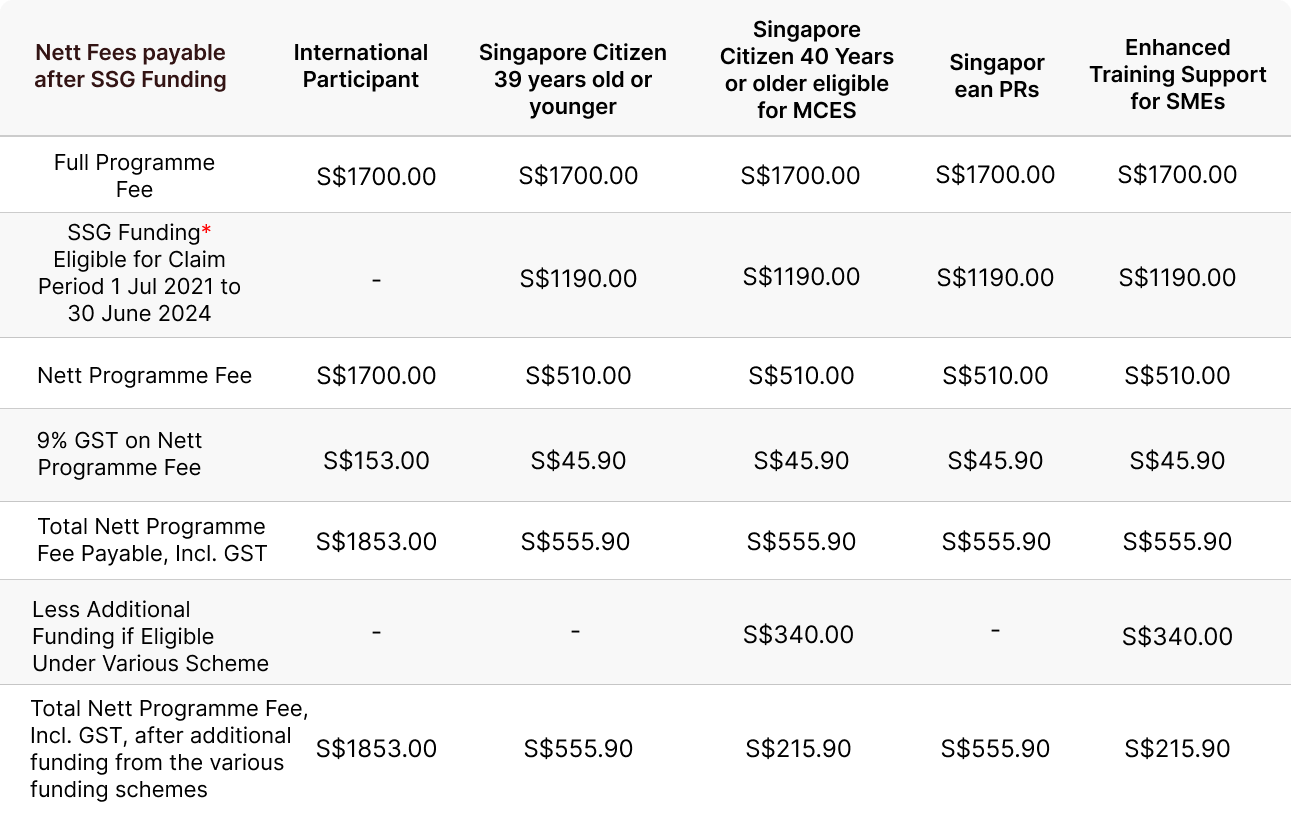
The Fundamentals of Creative Problem Solving
Date: 20 - 21 May 2024
Duration: 14 Hours
Mode Of Delivery: Face-to-Face or via Zoom
Tuition Fees: S$1700.00 (Before GST)

What You Will Learn
Problem solving skill is one of the most essential soft skills, particular in organisations where teamwork is important. It allows individuals to contribute effectively and achieve greater performance as a collective unit. This course will help individuals to understand the time and place where different problem solving techniques such as brainstorming and systems thinking should be used. Specifically, at the end of the course, the participants will be able to:
- Identify opportunities and translate them to specific and actionable problem statements
- Know the criteria of good problem definition.
- Recognise the key problem solving stages and the process.
- Describe accurately the problem solving stages using established terminologies such as “As-Is” and “To-Be”.
- Establish baseline (“As-Is”) and measure progress/impact of solutions
Understand the trade-off between effort and the returns.
Who Will Benefit
Working professionals who are in industries facing rapid market changes and technology disruption.
Instructor

Associate Prof Chai Kah Hin
Dr Chai Kah-Hin is an associate professor at the Industrial Systems Engineering and Management (ISEM) Department, National University of Singapore (NUS), and is also the Vice-Dean of Masters’ programmes and Lifelong Education at the College of Design and Engineering. His current research interests include maritime decarbonisation, energy efficiency and management, and product/service innovation. He serves on several national committees related to ISO 50001 and energy management. His research work appears in journals such as Research Policy, Energy Policy, Journal of Cleaner Production, Journal of Product Innovation Management, and IEEE Transactions on Engineering Management.
Entry Requirements
Nil
Available Discounts and Benefits

Notes
Course Code: TGS-2023018004
*Learners must fulfill at least 75% attendance and pass all assessment components, to be eligible for SSG funding.
**Please note that the mode of delivery is subject to change in light of the COVID-19 situation.
Courses marked ‘online’ may have compulsory face-to-face sessions such as laboratory or hands-on components and details should be sought from the schools or departments before learners register for them.
Related Programmes

Design Thinking Bootcamp

Design Leadership

Design Thinking Bootcamp



